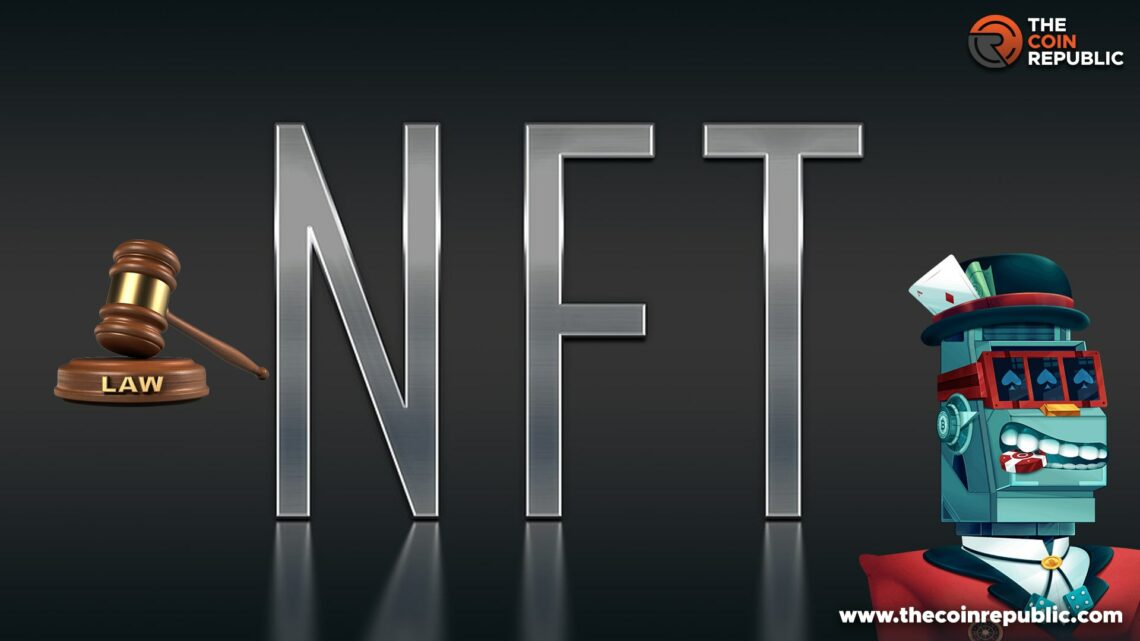- Slotie NFT illegally offered NFTs that promised holders shares of the casino
- Regulators from Texas, New Jersey, Kentucky, and Alabama filed emergency cease-and-desist
- Slotie operates gambling games in over 150 virtual casinos
A metaverse casino has been accused of selling NFTs in violation of securities laws by regulators in four states.
Slotie NFT, a Tbilisi, Georgia-based virtual gambling entity that markets itself as “the largest and fastest growing online casino network on the blockchain,” was the subject of emergency cease-and-desist orders filed on Thursday by state securities regulators from Texas, New Jersey, Kentucky, and Alabama.
Slotie, which runs gambling games in over 150 virtual casinos, sells non-fungible tokens (NFTs) that say they give holders ownership rights to those casinos and the ability to passively share in Slotie’s gambling profits.
State regulators found the NFTs to be unregistered securities
The rarity of the NFTs, of which Slotie issued 10,000, sets them apart; The holder of a Slotie NFT is said to be entitled to a larger portion of the casino’s profits the more uncommon the item is.
It is one of many NFT projects currently available that provide holders with similar services and revenue-sharing rewards. The NFTs were found by state regulators to be securities issued without registration and in violation of state laws.
In the four states that submitted orders, they have instructed Slotie to immediately stop selling its NFTs. If Slotie fails to comply with the orders within 30 days, its operators run the risk of facing fines in addition to two to ten years in prison and possible prosecution.
The gambling company, on the other hand, has not acknowledged the allegations publicly, instead reiterating today on Twitter its alleged illegal practices. The move comes at a time when tensions over the attitude of American regulators toward NFTs appear to be at an all-time high.
Although recent developments indicate that this may soon be changing, regulators have been particularly secretive about their interest in regulating NFTs as securities up until this point.
ALSO READ: Paxos collaborates with Mastercard to aid banks
The gambling company made no public acknowledgment of the charges
An attorney who specializes in NFTs, Jeremy Goldman, told Decrypt that it makes perfect sense that an NFT project like Slotie would be one of the first to attract the ire of a securities regulator. Said Goldman, This is low-hanging fruit.
According to the definition of security, Slotie NFTs are marketed as providing holders with a passive income from revenue generated by Slotties and its partners.
According to Goldman, the fact that the case involves gambling, which is a sector of state law enforcement that is highly regulated and closely monitored, may have influenced these states to pursue Slotie for securities violations.
It remains to be seen how this state-level action against an online casino will affect larger discussions regarding federal regulation of blue-chip, multi-billion dollar NFT collections.
An unidentified source told Bloomberg earlier this month that the Securities and Exchange Commission (SEC) is looking into whether Yuga Labs, the $4 billion company behind the well-known NFT collection Bored Ape Yacht Club, promoted and sold NFTs in violation of securities laws.

With a background in journalism, Ritika Sharma has worked with many reputed media firms focusing on general news such as politics and crime. She joined The Coin Republic as a reporter for crypto, and found a great passion for cryptocurrency, Web3, NFTs and other digital assets. She spends a lot of time researching and delving deeper into these concepts around the clock, and is a strong advocate for women in STEM.


 Home
Home News
News










